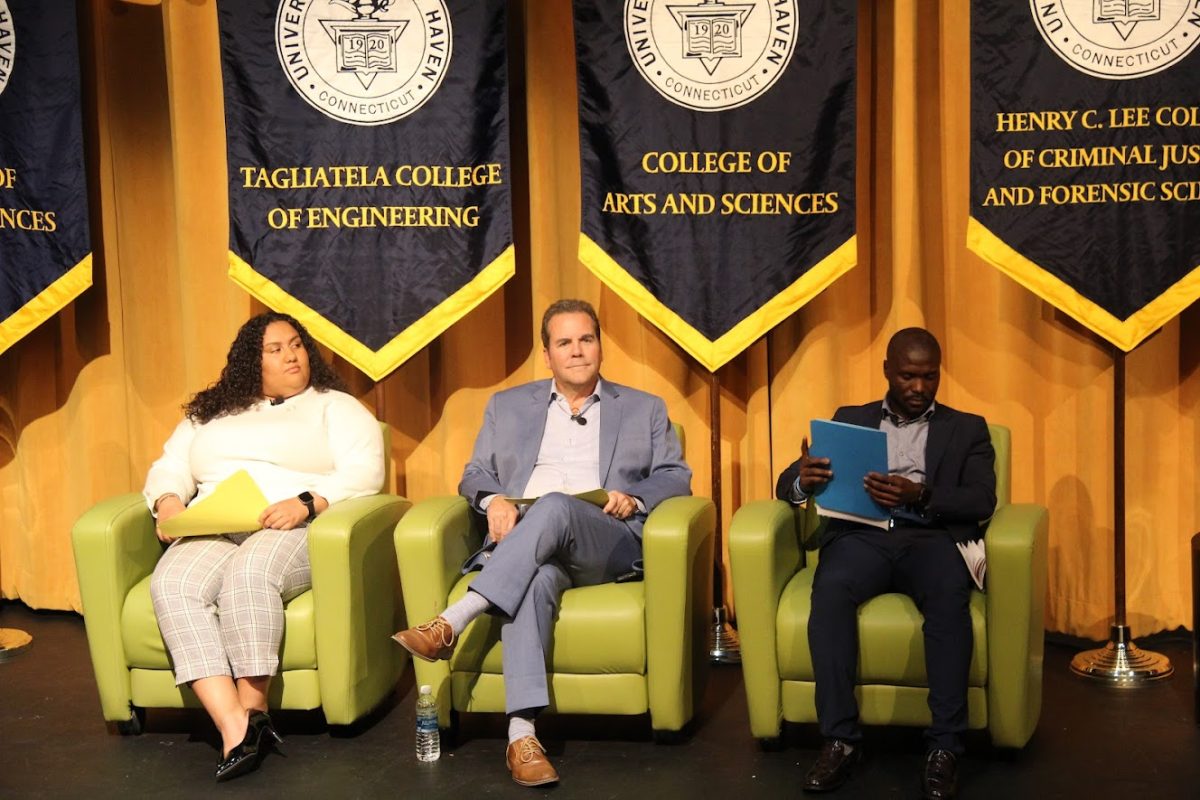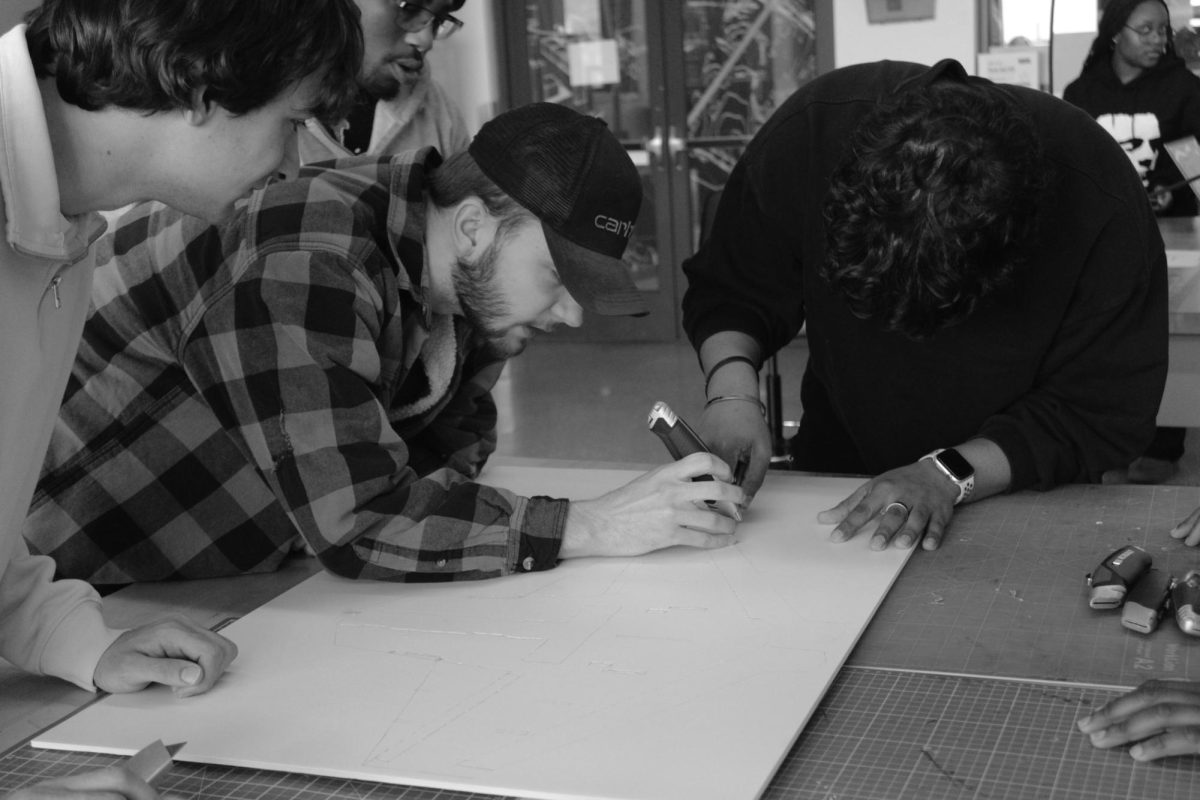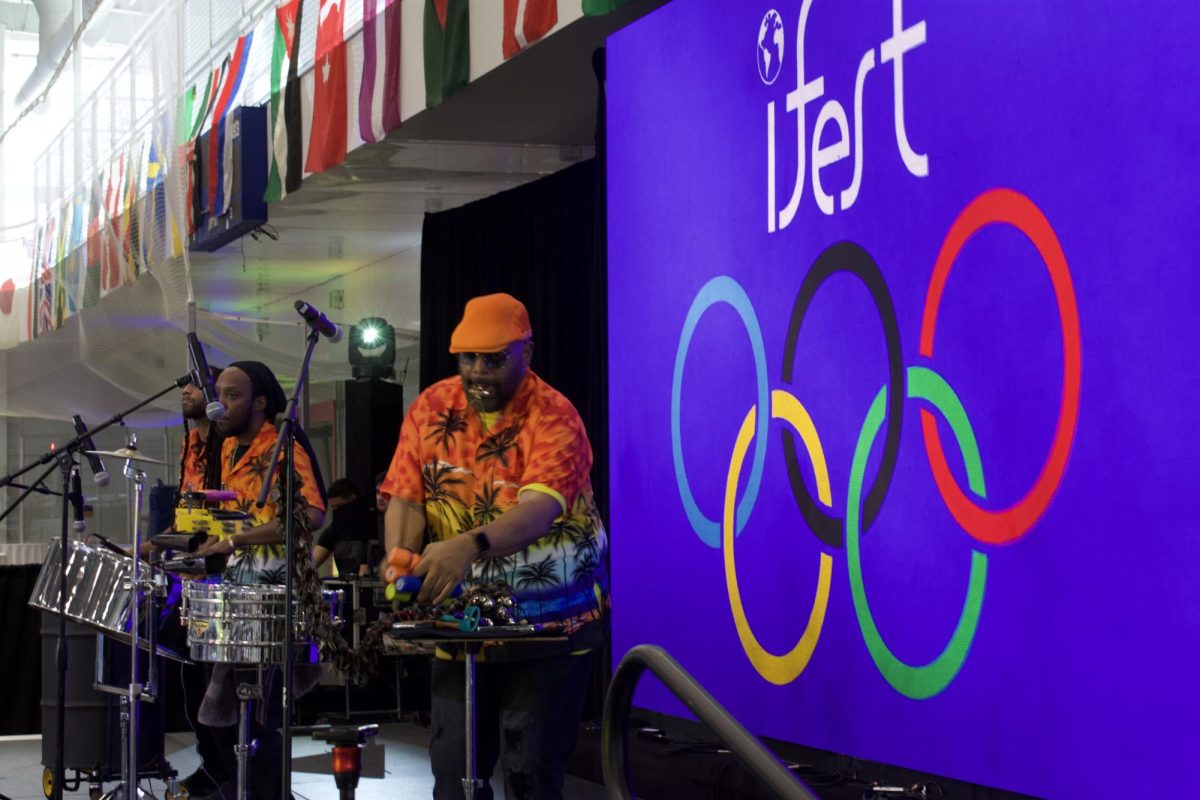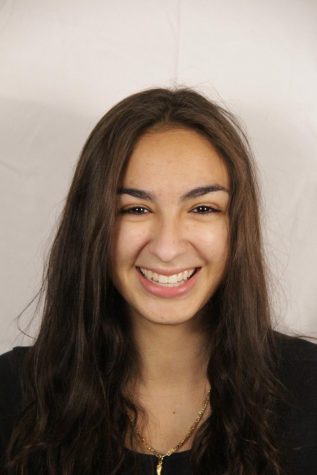Last Wednesday, the Undergraduate Student Government Association (USGA), Graduate Student Council (GSC) and Office of the President opened the doors of the Bucknall Theater to host their first annual State of the Union Address.
Beyond USGA President Darby Brown, GSC President Malick Bojang and Sheaton Zenger, the interim university president, Dean of Students and President of DEIAB Ophelie Rowe-Allen partook in the event, opening the union before any of the triad of presidents took to the podium. She highlighted the number of expert staff in attendance to aid in answering questions beyond the scope of those in the center of the state of the union.
Brown, Bojang and Zenger all gave opening remarks, speaking on the goals that they have for the community, initiatives that they are enforcing and the values they hope to be exercised through collaboration of all three branches of leadership.
Brown explained that the aims of the State of the Union surrounded goals “to bring graduate students, undergraduate students, staff and faculty together” to answer questions.
Bojang repeatedly said that he saw the goals as driving the initiative to “unite students under one umbrella.”
Following these remarks, Rowe-Allen acted as a moderator for the question portion, which worked to delve into a number of subsets of student life on campus.
The first point of discussion responded to a student submitted question asking how these leaders could ensure participation in DEIAB awareness about disabilities.
Brown said that the USGA’s focus would be on promotion through their high-traffic channels and heightened visibility of their leaders at events on campus. This was in application to all events that students find important, as Brown’s initiatives were clarified as not being limited to only a certain set of campus activities.
Bojang said that the GSC values everyone’s unique experience on campus and that they as a collective aim to engage with the university to increase accessibility.
Barbara Lawrence, the university’s new vice president of DEIAB and Title IX coordinator also spoke on the subject of accessibility and disability awareness.
On the matter, another student submission posed questioning of how the university will focus on accessibility, “as it has not been a main focus.”
Speaking on behalf of the Office of Facilities in addition to her own roles, Lawrence said that it was “unfortunate that is the perception, that accessibility is not a main focus, but it is.”
She continued by saying that “Lou [Annino] and his team and others of us are here to let students know that it is a priority,” and referred to accessibility improvement as “ongoing work.”
Both Lawrence and Zenger took the time to talk about the “we” of campus accessibility efforts, and the need for full staff involvement in these improvements.
Brown also took the time to establish that one of the main reasons she joined student government was to be an advocate and to “amplify student voices.” She repeatedly offered for USGA to facilitate conversations between students and staff to advocate with and for them for accessibility.
Eventually, the inquiries on parking resurfaced and were faced by Ronald Quagliani, the associate vice president of public safety. He spoke about how the University of New Haven went from “nothing but parking,” to a more residential campus focused on being a more walkable and safe community.
Increased quality of life for graduate and international students was another matter of discussion. The international student task force created by former Chancellor Steven Kaplan was mentioned, as was the predominantly international executive board of the GSC, who Bojang said is bringing these things “to the forefront.”
At one point, the discussion of greater support for fraternity and sorority life took to the table. Darby acknowledged that this “promotes a sense of unity and a sense of belonging” on campus for many people. Greg Overend, executive director for the Center of Student Engagement, Leadership and Orientation discussed how the University of New Haven is a deferred recruitment campus, meaning that students cannot go out for recruitment as first-semester students. Following many requests to change that, this fall for the first time, panhellenic fraternities could recruit first-semester freshmen, which has increased the number of students going out for recruitment. This model is set to be experimented with more groups on campus starting next year.
Nearing the end of the discussion, the panel of presidents was asked about bridging the gap between administrative decisions and students’ needs. To this, Brown said that her role was to amplify students’ voices to those who are capable of making those changes. This was in addition to her goals for greater outreach to students via social media, as it is less daunting than emails and transparency between the motions of her executive board as they are conveyed to the student body.








